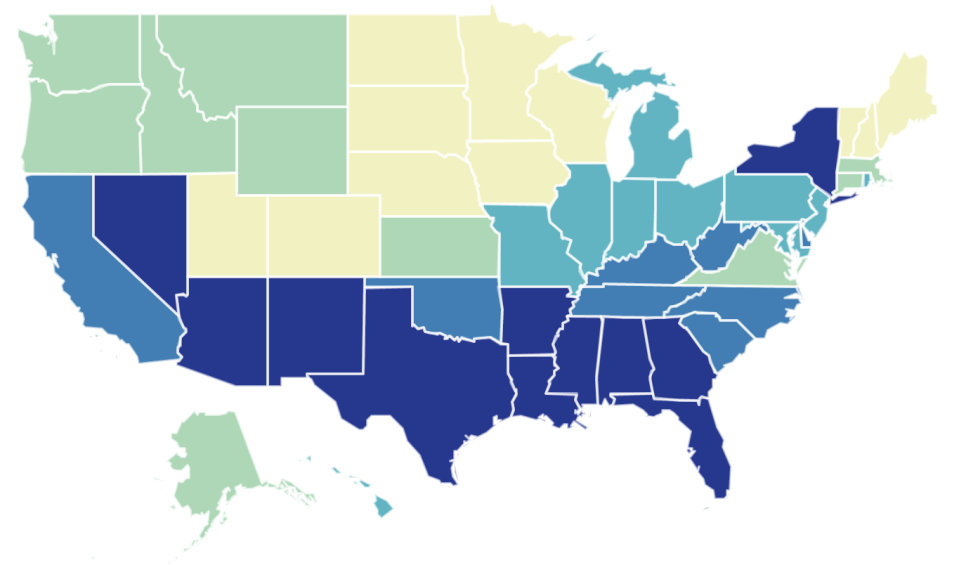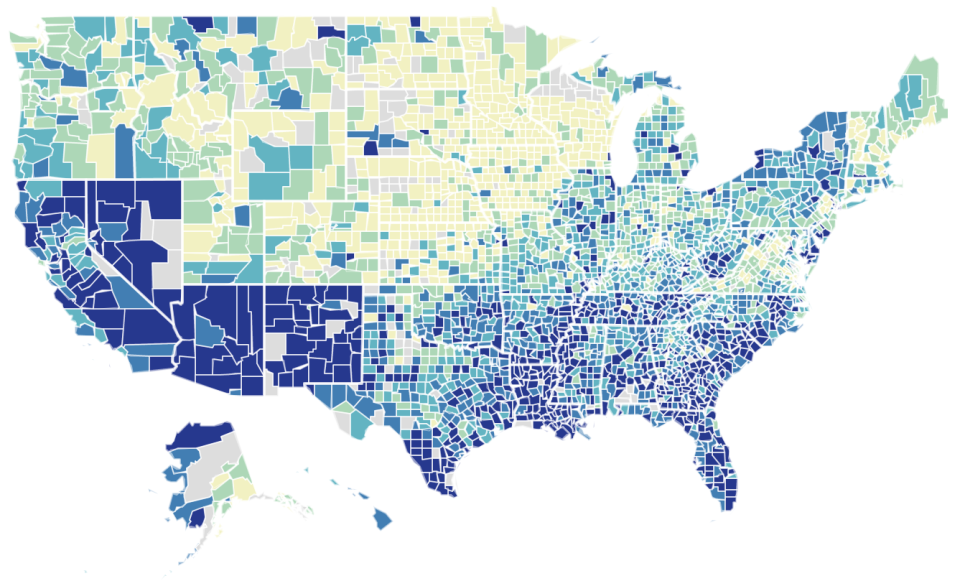Why this senator is studying 'social capital' — and how your state ranks
There are many ways to understand the state of the country these days. Sen. Mike Lee (R., Utah) is proposing that we focus on “social capital.”
“We all know there's a whole lot more to life than dollars and cents,” he said in an interview with Yahoo Finance. Speaking of things like family structure and community bonds, Lee said “these are the things that really make us and define us and lead to human thriving and all of these things make up the network of relationships that we call social capital.”
Lee didn’t come up with the idea or coin the phrase. It’s often attributed to the author Robert Putnam and his 2000 book “Bowling Alone.” But Lee is trying to use the power and platform of the U.S. government to more deeply define the idea, and use it to some extent a measure of society and collective well-being.
As chairman of the Joint Economic Committee – known as a “kind of an internal think tank within Congress” – Lee is in the middle of a multi-year research effort into the current state of these community and family relationships.
The methods and results reflect Lee’s perspective as a conservative Republican and gives insight – with detailed data down to individual counties – about how parts of American society have been fraying in recent years even before the current recession hit.
The state-by-state (and county-by-county) rankings
The state that comes at the top of the list, based on Lee’s metric, is his own home state of Utah. The state has top scores on things like family unity, social support and philanthropy.
But digging deeper into the list, there is little correlation between top social capital states and political leanings. The remainder of the top five states (Minnesota, Wisconsin, New Hampshire, and Vermont) all voted for Joe Biden last month.

The report points out that states with the highest social capital scores were clustered into two geographic areas. The first were a bloc of states that spanned the upper Midwest and the Plains region from Utah to Wisconsin. The second area was New England.
The states with the lowest ranking were largely grouped in the southern and Sun Belt states spanning from Nevada to Florida. Louisiana had the lowest social capital score, just ahead of Nevada, New Mexico, and Florida.

The rankings were based on seven factors developed by Lee’s staff and built using real data.
The family unity measurement, as an example, factored in things like the percentage of households with a single parent based on Census surveys. The community health ranking took into account factors like how many citizens of any given state volunteered in the last year. Another measure called “collective efficacy” was based on FBI statistics around violent crime.
Other metrics the committee used to compose the rankings were family interactions, social supports, institutional health, and philanthropic health.
Coronavirus has ‘made a lot of these issues worse’
The project began in 2017 and has released reports over the years on the links between social capital and things like stable monetary policy and encouraging Americans to save.
“What we found is that even before COVID, a lot of our communities were struggling with the challenges that come from isolation,” Lee told Yahoo Finance. “COVID has of course made a lot of these issues worse.”
Lee – who himself contracted the virus in October – has been a proponent of re-opening quickly to get the economy moving and decrease isolation.
Lee also wants to use the results of his project to push other legislative initiatives that he says would help some of the issues he is trying to highlight.
“Government can't and shouldn't ever try to force or coerce people into getting married,” he said. “But what we can do is look for ways in which government might be making matters worse and we can take off some of that burden.”
He pointed specifically to federal welfare programs that – for the lowest-income Americans – could mean a drop in benefits if two recipients choose to get married instead of staying single.
“I'm working on legislation that would undo some of those penalties and would at least stop the government from discouraging marriage,” he says.
Ben Werschkul is a writer and producer for Yahoo Finance in Washington, DC.
Read more:
Why the path forward for coronavirus stimulus may be at a 'more granular level'
How a Republican senator weathered his case of the coronavirus
How Trump’s program for investing in poor communities could fare under Biden
Read the latest financial and business news from Yahoo Finance
Follow Yahoo Finance on Twitter, Facebook, Instagram, Flipboard, LinkedIn, YouTube, and reddit.
